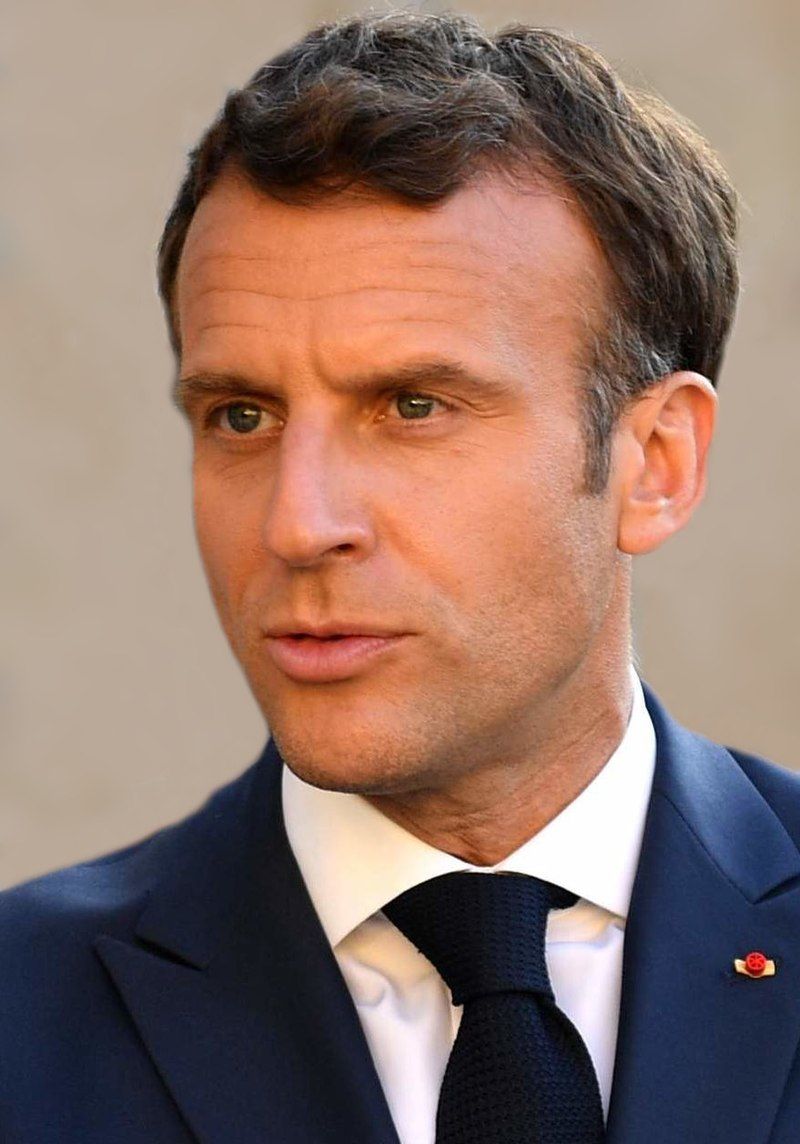Macron takes a stand for a cease fire in Gaza
One of the primary objectives of Macron's visit to Israel was to express France's resolute support and "complete solidarity" with Israel following the recent surge of violence triggered by the Hamas attack on October 7.

French President Emmanuel Macron has told Israeli Prime Minister Benjamin Netanyahu there were “too many civilian losses” in Israel’s war in Gaza, as Paris readied more humanitarian aid for the besieged enclave.
But an adamant Israel has said it wants to destroy the Palestinian armed group after it killed about 1,200 people and took hundreds more captive in a surprise assault on October 7.
More than 13,000 people in Gaza, some 70 percent of them women and children according to the United Nations, have been killed in the air and land offensive. Hospitals, schools and refugee settlements have also come under sustained attack.
This is a terrible payback for the Palestinian people against the attack by the Hamas on October 7.
Meanwhile, Macron's visit to Israel on October 24, 2023, was a momentous occasion that showcased unwavering solidarity with the nation amidst the ongoing Israel-Palestine conflict. Macron's visit was driven by multiple motives and aspirations, making it a significant event with far-reaching implications.
One of the primary objectives of Macron's visit was to express France's resolute support and "complete solidarity" with Israel following the recent surge of violence triggered by the Hamas attack on October 7. By personally visiting the country, Macron aimed to send a powerful message of solidarity and reassurance to the Israeli people, emphasizing France's commitment to stand by their side during this challenging period.
Furthermore, Macron recognized the urgent need to address the humanitarian crisis that was unfolding in Gaza. With Israel engaging in relentless bombardment and preparations for a potential ground invasion, the welfare of the civilian population was at stake. Macron empathized with the gravity of the situation and stressed the importance of taking immediate action to mitigate the unfolding disaster. He called for measures to ensure the preservation of Palestinian lives and alleviate the suffering of those affected.
In his pursuit of peace, Macron arrived in Israel fully prepared with operational proposals aimed at preventing further escalation, securing the release of hostages, guaranteeing Israel's security, and working towards a two-state solution. He underscored the urgency of initiating a genuine peace process that would lead to the establishment of a viable Palestinian state, while also addressing Israel's security concerns.
Moreover, Macron proposed the formation of an international coalition to counter the threat posed by Hamas, the Palestinian militant group. Drawing inspiration from successful coalitions combatting other terrorist organizations, such as the coalition against the Islamic State, Macron advocated for a broader and more robust approach to effectively address the challenges emanating from Hamas. He called for regional and international cooperation in order to confront these terrorist groups that pose a significant threat to global security.
Given the dire circumstances in Gaza, where the population of approximately 2.3 million people faced severe deprivation of basic necessities due to the Israeli blockade, Macron emphasized the critical need for a humanitarian truce. This would enable the much-needed delivery of aid, including vital supplies such as water, food, electricity, and fuel. Macron highlighted the urgency of facilitating humanitarian assistance to alleviate the suffering of the affected population.
During his visit, Macron engaged in crucial meetings with key Israeli and Palestinian leaders, fostering dialogue and understanding in pursuit of peace and stability in the region. He held discussions with Israeli President Isaac Herzog, as well as opposition leaders Benny Gantz and Yair Lapid in Jerusalem. Additionally, he met with Palestinian President Mahmoud Abbas in the occupied West Bank, further demonstrating his commitment to facilitating constructive dialogue among stakeholders.
In a poignant display of empathy and support, Macron visited Israeli-French nationals who had lost family members in the violence. He also met with families of captives, acknowledging their anguish and pain resulting from the conflict. These encounters allowed Macron to witness firsthand the devastating impact of the conflict on individuals and families, reinforcing his determination to find a resolution that addresses their needs and aspirations.
In conclusion, French President Emmanuel Macron's visit to Israel during the Israel-Palestine conflict served as a powerful testament to solidarity and commitment. Through his visit, Macron aimed to express unwavering support for Israel and address the pressing humanitarian crisis in Gaza. His proposals for peace initiatives, international cooperation against Hamas, and advocacy for a humanitarian truce demonstrated his determination to alleviate the suffering experienced by both Israeli and Palestinian populations. Macron's engagement with leaders from both sides underscored his dedication to fostering dialogue and collaboration in order to find a sustainable solution. Ultimately, his visit exemplified France's steadfast commitment to promoting peace, stability, and well-being for all parties involved in the Israel-Palestine conflict.
